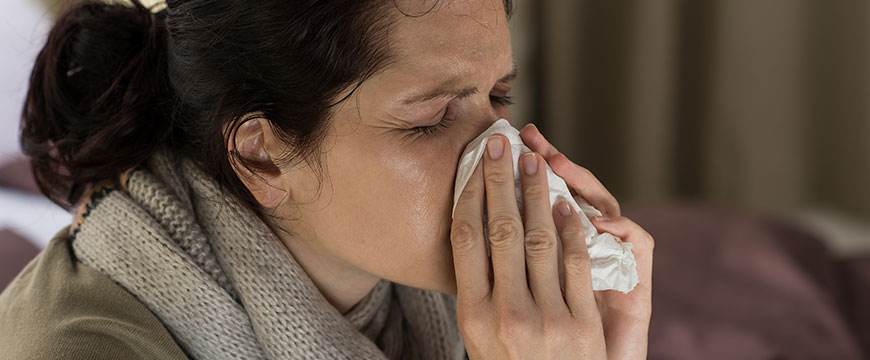
Having interrupted sleep makes you feel tired throughout the day, and it will have negative effects on your health in the long run. You do not want this to become regular because you need the energy to tackle daily challenges. When you wake up in the middle of the night because of a coughing fit or you are having a hard time breathing, the experience can get terrifying.
The unfortunate thing is that asthma patients have to deal with that, especially if they do not see their asthma doctor regularly. When your asthma gets worse at night, you are not alone because it is very common. Sometimes, experts call this nocturnal asthma, and it makes it very hard for you to get the rest you need.
Asthma Attack Triggers
People experience different asthma triggers. Some people get triggered due to allergens exposure like grass or dust mites. Other people are triggered by irritants like strong odors or chemicals. Respiratory illnesses that are accompanied by mucus drainages like sinusitis or colds increase the chances of an asthma attack. Weather changes and exercise can also trigger attacks. There are people who may discover that more than one thing increases the possibility of an asthma attack, and can worsen at night.
Factors that Contribute to Nocturnal Asthma
For some reason, asthma gets worse at night. This problem is serious and most deaths from asthma are because of wheezing or other symptoms at night.
The factors are:
- Gastrointestinal reflux disease (GERD)
- Dust mites or other allergens
- Overproduction of mucus
- Higher level of histamine
- Breathing in cold air
- Lower epinephrine levels
- Sleep apnea
- Obesity
- Not elevating the head while sleeping
- Psychological stress
Nocturnal asthma can be caused just by seeping because the bronchial function changes. During sleep, the airways become narrow and it creates more resistance for air to come in and out of the body. This causes coughing, which further tightens the airways. After that, your sinuses will drain, and trigger asthma reactions. Therefore, breathing worsens between 4 to 6 hours after you sleep.
Other Causes
- Postnasal drip – People are more prone to postnasal drip during the night. When you are laying down flat, fluid can easily drip down towards the back of your throat and causes you to start coughing. Lying down can also cause the fluid to flow from your legs to your chest, and this leads to more fluid accumulation in the airways and narrows down breathing passages.
- Timing of Medication – If your asthma medication starts to wear off while you sleep, you are more likely to have nocturnal asthma.
Medication
Asthma specialists normally prescribe 2 primary medications: a long-term inhaler and a rescue inhaler. The asthma triggers are individual-specific, and people should consult with their asthma doctor to find the right care plan for them. A lot of doctors prescribe both kinds of inhalers.
Treatment
If your asthma attack wakes you up in the middle of the night, reach for your rescue inhaler. Sleeping in a more upright position is also helpful. Some people discover that drinking water eases a cough.
In case you have regular asthma symptoms during the night, talk to your healthcare provider to address the problem. It may be helpful to adjust the timing of your medication.
There are times when your healthcare might have to add or increase medication. Asthma can get worse in the long run, and if you have nocturnal asthma, your asthma care plan might need tweaking to eliminate the symptoms.
You can visit an allergist specialist Manassas VA as well to find the best asthma treatment plan for your nighttime symptoms.